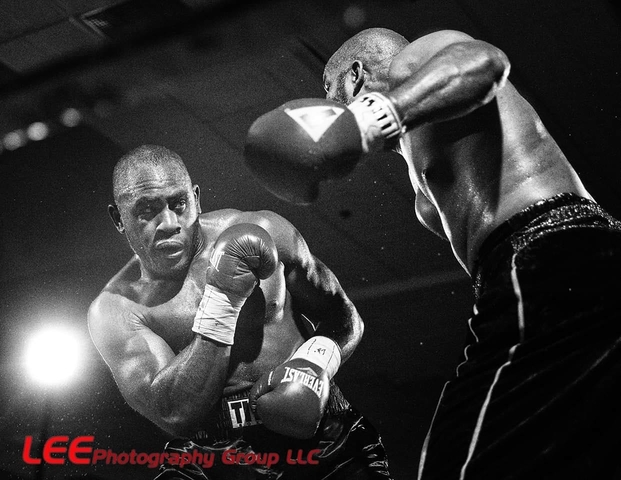It’s amazing how things that happened to us as children can have lasting, unexpected effects on us in adulthood. At the extremes, we know about the impact of crazy childhood trauma on adult life outcomes. For example, you’re 11x more likely to abuse drugs or alcohol if you have more than four adverse childhood experiences (ACEs).
ACEs require an entire post, but they’re specific traumatic events a child experiences. Abuse of all types, neglect, witnessing domestic violence—stuff on that level. You can read more about them here and take the test to see how you measure up here.
Although it’s commendable that we’ve started investing so many resources into studying the effects of childhood experiences on adult outcomes, this kind of stuff seems obvious to me. Maybe it’s because I lived through it and have seen the effects firsthand.
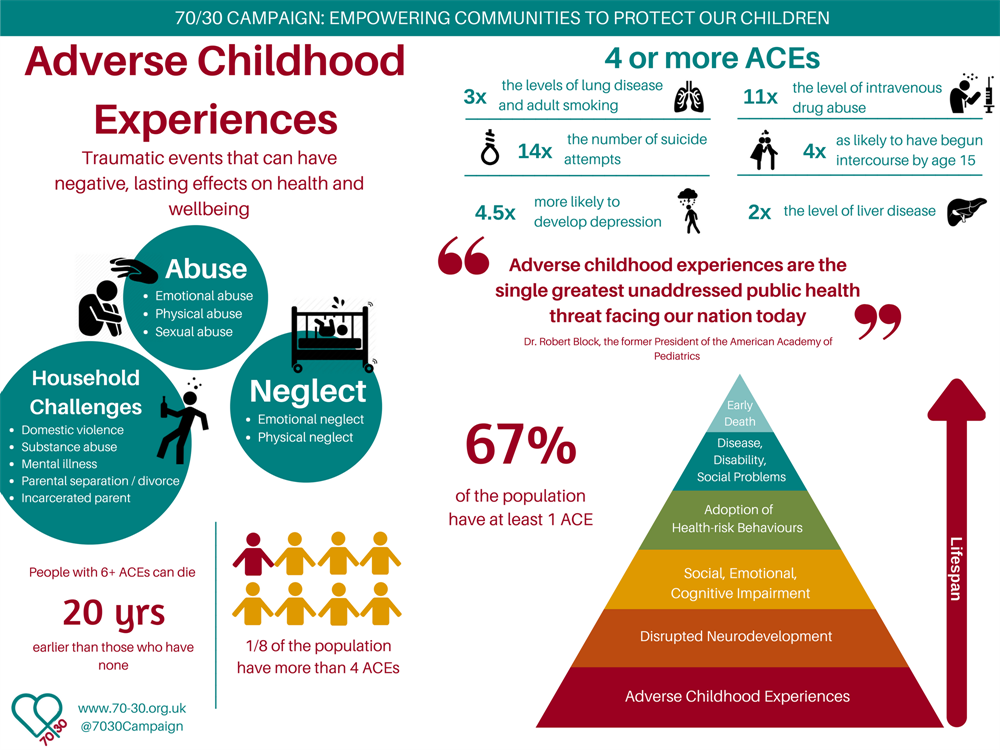
According to their criteria, I have 7 of these. I don’t have most of these issues, but I have some. ACEs are probabilistic; not deterministic.
When most of your experiences involve disappointment and harm, it’s easy to become bitter and sad. Suppose a person spends their childhood in constant fight-or-flight but has nowhere to run and no way to defend themselves. In that case, it’s easy to see how one loses faith in humanity and becomes incensed towards it.
Studies show that early life stress alters brain structure and function in ways that precipitate mood disorders like anxiety and depression. These changes in your brain lead to changes in how you perceive the world.
Now, I was raised in that environment, and I had to work through my issues with alcohol abuse. I fortunately have never seen the inside of a prison, but that’s the type of big stuff everyone notices and talks about…
Now, I’m not saying that everyone who goes through an adverse experience ends up on the worse side of life, and I’m not saying that everyone who’s ever got hooked on drugs had an abusive childhood.
I’m just pointing out one of the stronger, more well-studied relationships between childhood experience and adult behavior. If you can understand that, then the rest of this newsletter is easy to understand and implement to make serious changes in your life.
Do you have a similar story?
My mom always said, “Do I say, not as I do.” This was to justify less-than-stellar behavior and to relieve the pressure of modeling the behavior she wanted in her kids. Now that I’m a parent, one of the cool things about having a kid is that it forces me to be hypervigilant about what I do because kids copy EVERYTHING. My son even started punching the air because he saw me shadowboxing. The pressure is too much for some parents, so they try to lead by force rather than example. However, the type of person to lead by force is also less likely to honor their own conditions if those conditions frustrate them.
Aside from her alcohol problems and extreme temper, my mom was one of those old-school parents who believed that a hard head makes a soft ass. If you’re not from the hood, that’s the ghetto version of “spare the rod, spoil the child.” So that meant a lot of beatings.
Not spankings, but full-on ass-kickings with belts, plastic belts, coat hangers, and sometimes, even fists. My mom used to tell me that she would never be mad for speaking my mind, even if I disagreed with her…but given what I just told you, you can probably guess how that went.
From a young age, I learned to shut the hell up. Outside of home, I feared being wrong and speaking up when dealing with others. It didn’t matter whether they were my classmates, friends, or friends. You might find this hard to believe—as will anyone who knows me personally—but I’m naturally not particularly confrontational or outspoken.
I’ve just learned—the hard way and repeatedly—that it’s better to be the hammer than the nail. One of the reasons I started singing karaoke and boxing was to develop my ability to feel comfortable exposed and in confrontation.
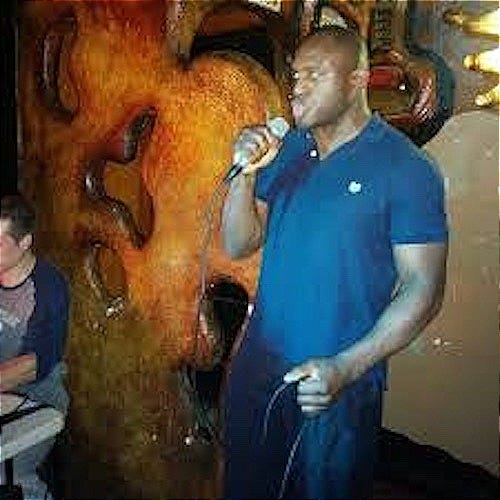
Me singing karaoke. I don’t remember the song, but I love singing The Eagles.
Even if you aren’t a fan of singing in front of a crowd or trading blows with another human in state-sanctioned violence, you can see the value in these activities for someone afraid to stand out, stand up for themselves, and make their voice heard—literally and figuratively.
As an adult, I’ve made great strides in this area of my life. However, there is one area where I am surprisingly behind the curve that I struggle with today. However, I’ve recently been working on that, too.
What happens in childhood never stays in childhood
My wife sometimes gets annoyed because I tend to mumble. For a while, I just attributed it to her bad hearing because, of course, I was speaking clearly. That was a joke, but isn’t that how most of us react when one of our shortcomings is brought to attention? We automatically think something must be wrong with the other person, so we immediately get defensive, and sometimes a fight follows shortly after.
However, an incident while we were living in Portugal opened my eyes. I was attempting to practice ordering my food. I had practiced it well enough on my own. Because of years of bad singing and getting beat up in front of strangers, I wasn’t shy about making a fool of myself in another language. Or so I thought…
“Open your mouth! She can’t understand you because you’re mumbling.”
Here’s the thing about unconscious mumbling. Many people think you do it when you’re intentionally trying not to be heard, but it can manifest because you’re afraid of being heard. It doesn’t matter if it’s because you’re not sure about what you’re saying or you’ve got some subconscious weight on your shoulders. All that matters is that something is restricting you from finding your voice.
This was almost six years ago, but I remember how easily understood I was after I began to focus on opening my mouth when communicating in Portuguese. Unfortunately, I carried this tendency into communication in my native English, and if I didn’t find a way to fix it, it could cost me a lot of opportunities.
Never be afraid to ask for help
As many of you know, I just finished writing my next book, “Hard Lessons From The Hurt Business.” The publication date isn’t until August 5th, 2025, because there are many things to do. Two of those things require extensive use of my voice: recording the audiobook and growing my YouTube channel.
Although the book is a memoir, I still have to audition for the job. After I get the job, I have to spend 3-4 days reading the whole thing, so my voice is essential. The growth of my YouTube channel carries less pressure and fewer demands. Still, I’m taking it seriously, and the results are showing.
Now is a great time to subscribe to my YouTube channel if you haven’t already done so. My latest video on how The Book of Five Rings provides a blueprint for learning has almost 10k views (Watch here)!
Michael Hewitt is one of those people I met off Twitter and instantly connected with. He’s sober, heavy into fitness, and an incredibly talented opera singer who’s performed worldwide. I’m a big opera fan, so I like to brag that I’m friends with him.
I once drove 7 hours to see him play Lt. Horstmayer in Silent Night at the Glimmerglass Opera Festival (leave a comment or reply if you’re an opera nerd who knew what this was without Google).

Michael Hewitt as Lt. Horstmayer, “Silent Night.” Photo Credit: Karli Caden
The wife and I later drove to see him play Angelotti in “Tosca” at the Kennedy Center in Washington, D.C.. He’s a man who knows about building and developing your voice. When it was time to fix my voice-mumbling issues, he was the one I turned to, and what I discovered was quite surprising.

Michael Hewitt as Angelotti in “Tosca.” Photo credit: Scott Suchmann
Every guy will tell you to “speak with your chest,” and this is true, but what’s not usually mentioned is that for your richest and fullest sound, you have to get your throat involved, too. I was incredibly apprehensive about raising my voice, so I was not taking advantage of the full range of my vocal chords. When I went through the exercise, I spoke through my throat and chest, and my throat fought me because it was underused and rusty, but a funny thing happened.
I discovered that because I wasn’t using the full range of my voice, I had subconsciously spoken with my mouth in a more closed, tighter position. As a result, the muscular coordination of speaking with my mouth open also had to be trained. Much like how we often don’t consider how childhood experiences affect our adulthood, the underaction of my throat had downstream effects on my mouth.
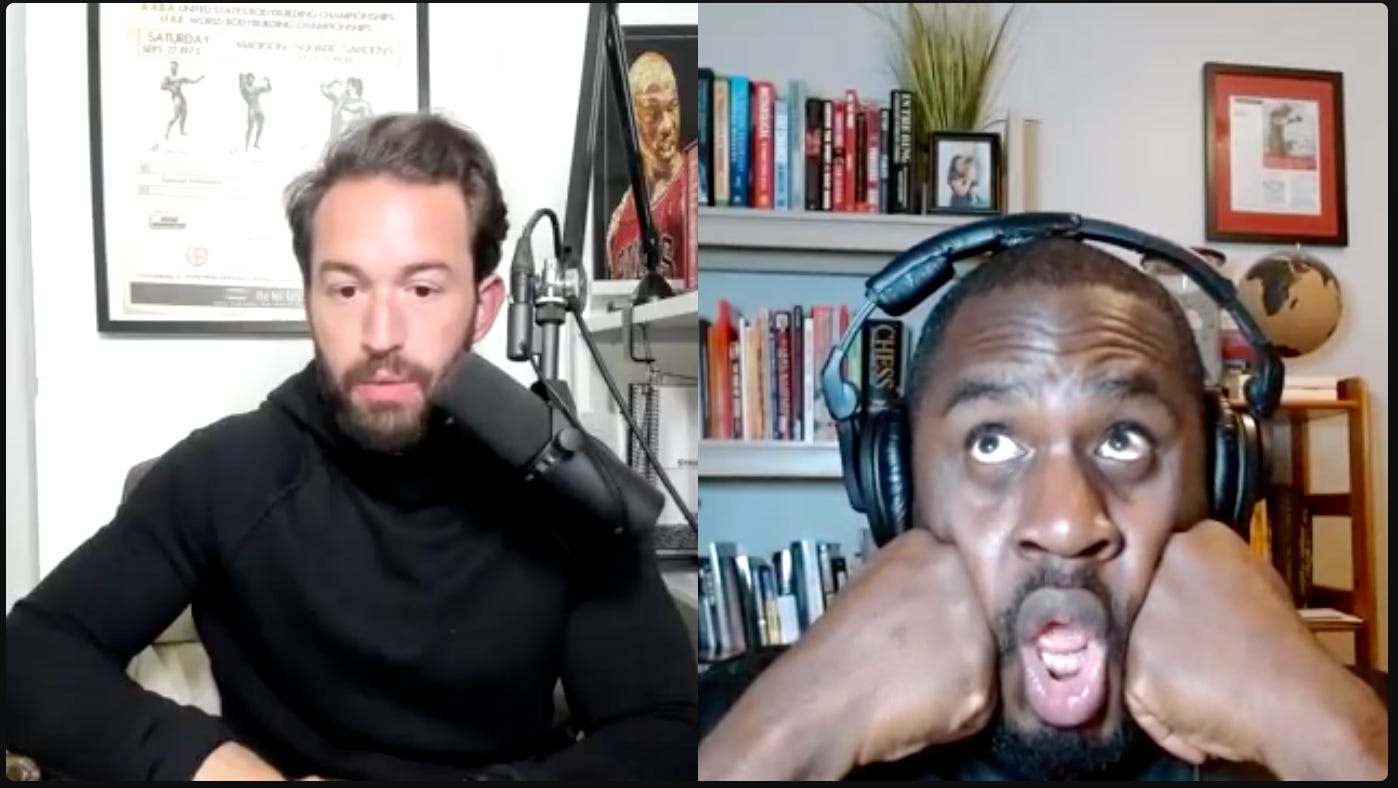
This exercise feels as silly as it looks, but it legitimately works.
Or maybe it was the other way around, in that I had subconsciously refused to open my mouth more to be heard, so my throat range went dormant. Therefore, whenever I was remotely stressed or worried, I retreated to the speaking patterns I had developed as a child.
Singing and fighting helped me to be more in the moment. Still, it did nothing for the underlying engrained patterns that reemerged when I was under duress.
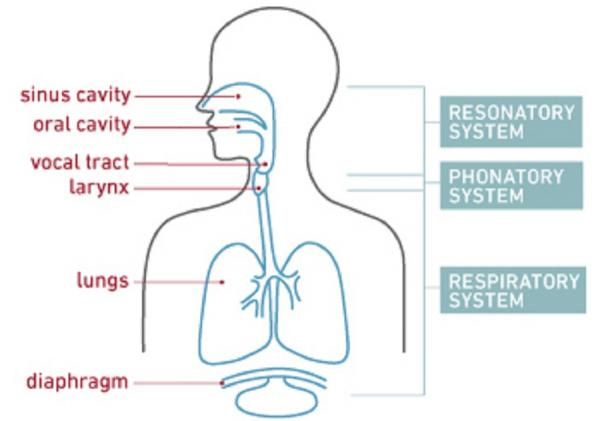
This entire system has to work together. The vocal tract is complex, but much of mine was dormant. Picture courtesy of https://www.templehealth.org/about/blog/how-does-my-voice-work
I’m sticking to a training program Michael gave me to work on my vocal muscles, but I’m also learning to be more conscious of my body when I’m stressed. I pride myself on my resilience and toughness.
Still, I have to remember that stressful energy doesn’t just disappear because you don’t feel its effects. It will come out somewhere down the line and can affect you in ways you never expected.
I highly recommend Michael’s training program if you want to improve your vocal range, enunciation, and clarity so that you can speak from the depths of your soul. It covers many of the techniques he used with me, and he’s also available for one-on-one coaching. His list of offerings is below.
- Tonality Training: Mastermind Masterclass (Recording)
- Unleash Your Voice: Tonality Training
- 1:1 Noble Tone Voice & Tonality Coaching
Improving my voice has been one of the most surprising investments I’ve ever made. Not only did I sound better, but it also made me aware of subconscious behaviors and thoughts stifling my voice.
Your voice is as unique as your fingerprints. Take care of it, nurture it, and learn what it can teach you about yourself.




